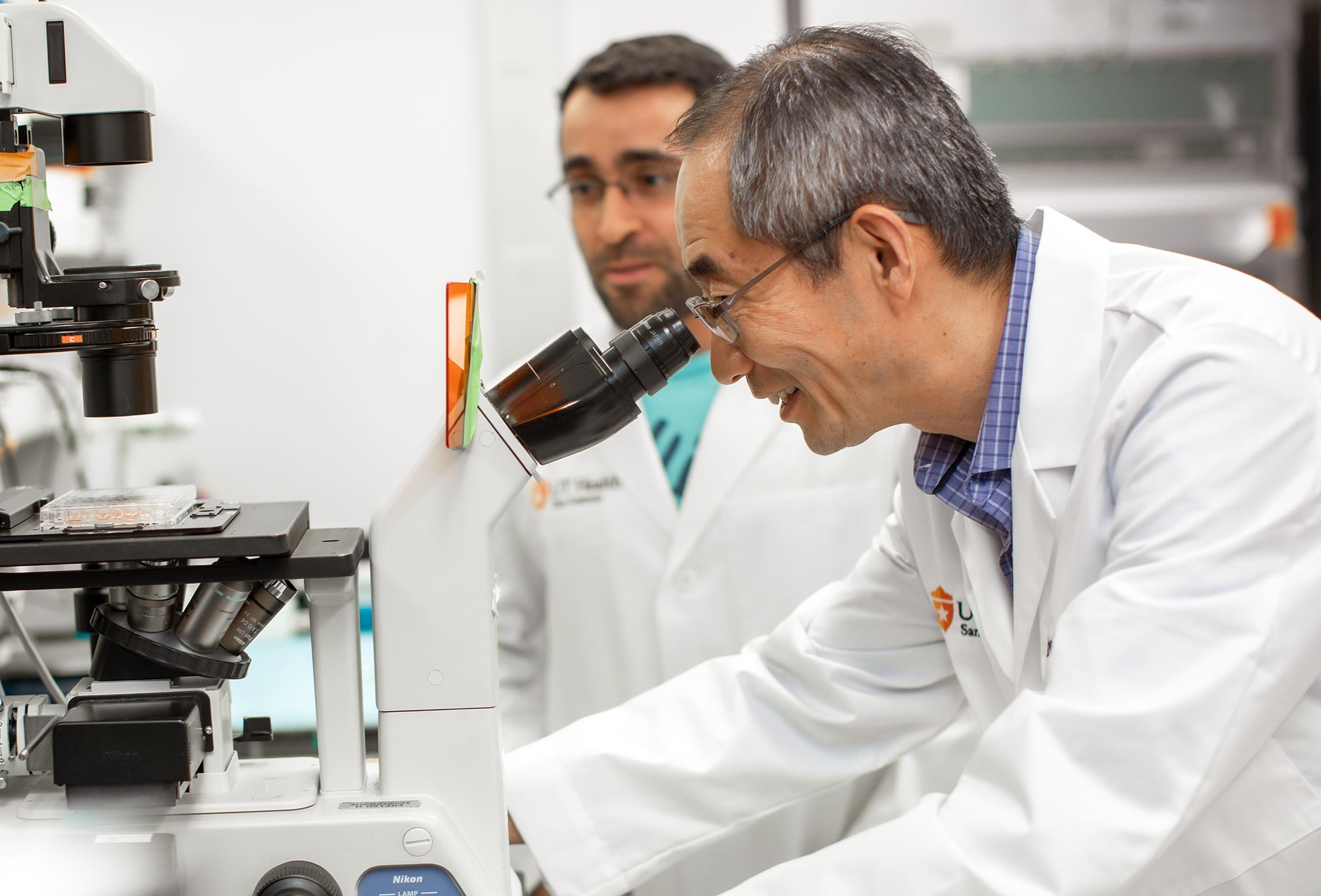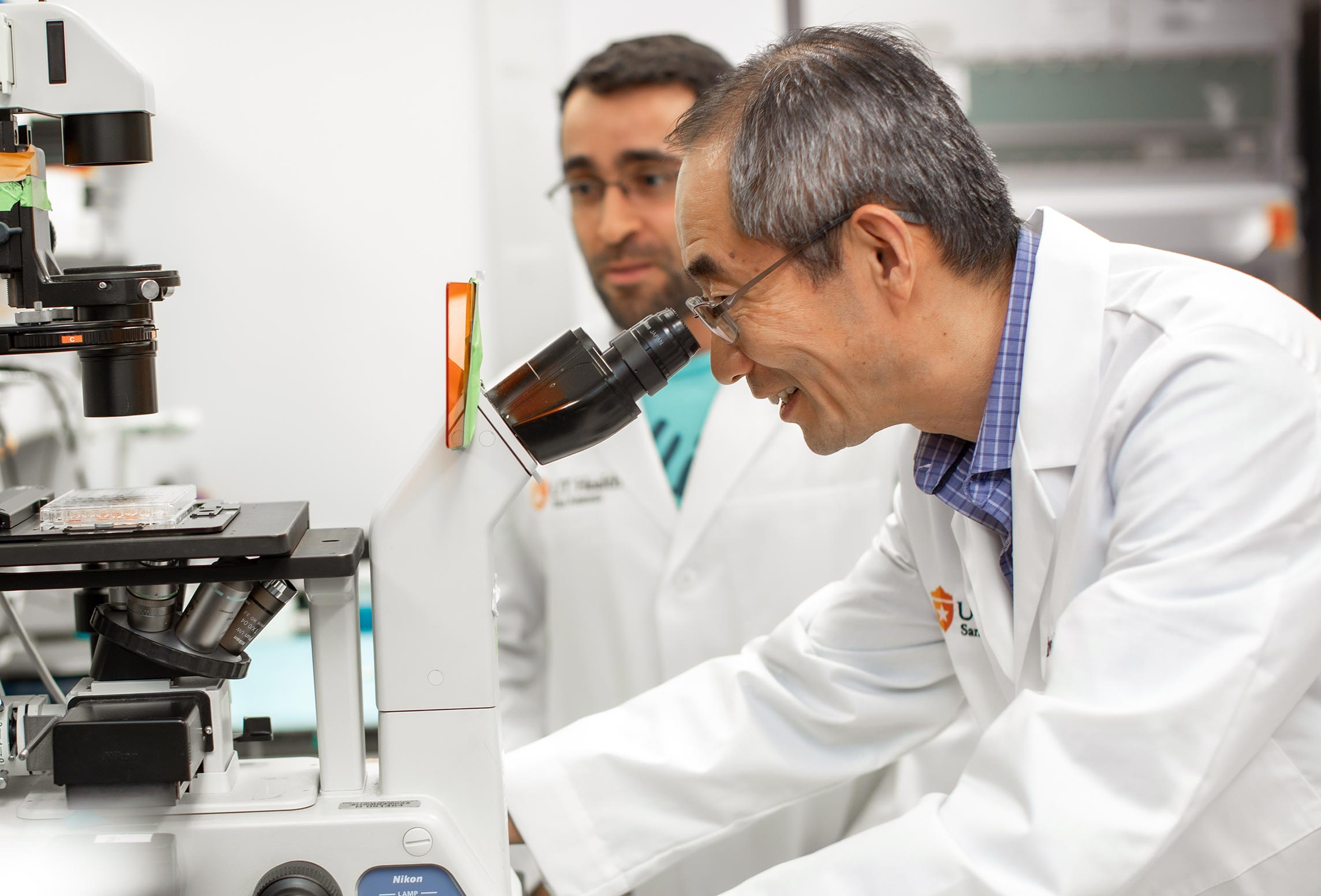

About Cancer Clinical Trials
- About Us
-
Cancer Care
-
Our Cancer Programs
- Adolescent and Young Adult Cancer Program
- Blood Cancer & Hematological Malignancy Program
- Blood Disorder (Hematology) Program
- Breast Cancer Program
- Cancer Genetics Program
- Cancer Risk Reduction and Education Clinic
- Cardio-Oncology Program
- Childhood Cancer Survivorship Program
- Endocrine Tumor Program
- Eye Cancer Program
- Gastrointestinal (GI) Cancer Program
- Genitourinary Cancer Program
- Gynecologic Oncology Program
- Head and Neck Cancer Program
- Liver Tumor and Cancer Program
- Lung Cancer Program
- Neuro-Oncology (Brain Tumor) Program
- Neurofibromatosis Program
- Pediatric Neuro-Oncology Program
- Pediatric Oncology Program
- Pediatric Sarcoma Program
- Pediatric Thrombosis Program
- Radiation Oncology
- Sarcoma Cancer Program
- Skin Cancer Program
- Supportive Cancer Care Program
-
Screening and Diagnosis
- Cervical Cancer Screening Guidelines
- Colorectal Cancer Screening
- Endometrial (Uterine) Cancer Screening Guidelines
- Hepatitis and Cancer
- HPV Vaccine and Screenings
- Liver Cancer Guidelines
- Lung Cancer Screening
- Mammogram
- Ovarian Cancer Screening Guidelines
- Prostate Cancer Screening Guidelines
- Skin Cancer Screenings
- Sun and Skin Safety
- Tobacco Use and Cancer
- Skin Cancer Screenings
- Cancer Genetics Program
- Cancer Survivorship Program
- Cancer Treatments
- Conditions
-
Our Cancer Programs
- Clinical Trials and Research
- Donate and Volunteer
- Education
- Patients and Families
- Appointments
- Doctors and Locations
-
Community Outreach and Engagement Program
- Message from COE Leadership
- South Texas Cancer Burden and COE Areas of Work
- Our COE Impact
- COE Community Advisory Board
- COE Publications
- Avanzando Caminos (Leading Pathways) Study
- Estudio Avanzando Caminos (Leading Pathways)
- San Antonio Firefighters Cancer Prevention Program
- STAR Immunotherapy Study
Our nationally recognized cancer experts lead clinical trials to answer important research questions. Clinical trials may also mean you receive innovative tests and therapies years before they become widely available.
With our decades of experience, you can count on us for safe, appropriate care. And because we are an active partner in respected cancer research networks, you gain access to some of the latest options.
Why choose us for cancer clinical trials?
- National recognition: Mays Cancer Center is the only National Cancer Institute (NCI)-designated cancer center in Central and South Texas. This recognition is awarded to centers with a history of excellence in research. Designated centers offer cancer education and have a sustained commitment to community outreach. Read more about our NCI designation.
- Timely access: Research coordinators work closely with cancer teams to identify clinical trial opportunities as early as possible. Some eligible patients may be able to start clinical trials shortly after their diagnosis. Others pursue clinical trials after trying standard treatments. Find out more about:
- Unique opportunities: We are exploring solutions to challenges affecting our South Texas community, including unusually high liver cancer rates. We also have a long history of successful cancer drug development. If you’re eligible, these efforts can give you access to clinical trials that may only be available through Mays Cancer Center. Find out more about our Institute for Drug Development.
- Support: Our team includes experienced research coordinators who help you have a safe, comfortable experience. Coordinators make sure you receive tests and treatments at precisely the right time. Our specialists check on you between appointments to help keep your care on track.
Our clinical trial interests
Our research spans all aspects of cancer care, enabling more patients to benefit from clinical trials. Find out more about clinical trial treatments.
You may be eligible for clinical trials and research studies that are investigating:
- Medical therapies, such as new chemotherapy drugs, targeted therapies and immunotherapies
- Nonmedical treatments, including new surgery and radiation oncology techniques
- Combinations of cancer services, including chemotherapy and radiation therapy
- Preventive care to lower the risk of receiving a diagnosis of specific types of cancer
- Screening tests to improve the likelihood of diagnosing cancer in its early stages
- Supportive care, including specialized therapies to make your recovery smoother
- Survivorship services, which help you stay as healthy as possible after completing cancer treatment
What you need to know about clinical research
- Participating in clinical research is voluntary. We explain how the study works and its benefits and risks. We emphasize how a study might affect your quality of life. It’s up to you whether you’d like to take part.
- In some cases, patients on clinical trials need care, such as more frequent checkups. It may include regular contact with research nurses. These extra touchpoints help you stay safe and avoid complications.
- You can withdraw from a clinical study at any time. Your decision will not affect your treatment or your relationship with your doctor. If you decide not to participate, you still receive the same high-quality care you’d expect from Mays Cancer Center.
Explore research at Mays Cancer Center
Find out more about how our research is helping us advance the understanding of cancer development and progression. Our efforts are paving the way for innovative cancer care and prevention techniques in South Texas and across the country.
Find cancer clinical trials
Receive new cancer treatments and services before they are widely available by participating in cancer clinical research studies.
Meet our research team
Our research team includes cancer experts from different medical specialties and scientists who share a commitment to advancing care and outcomes.

 Close
Close
